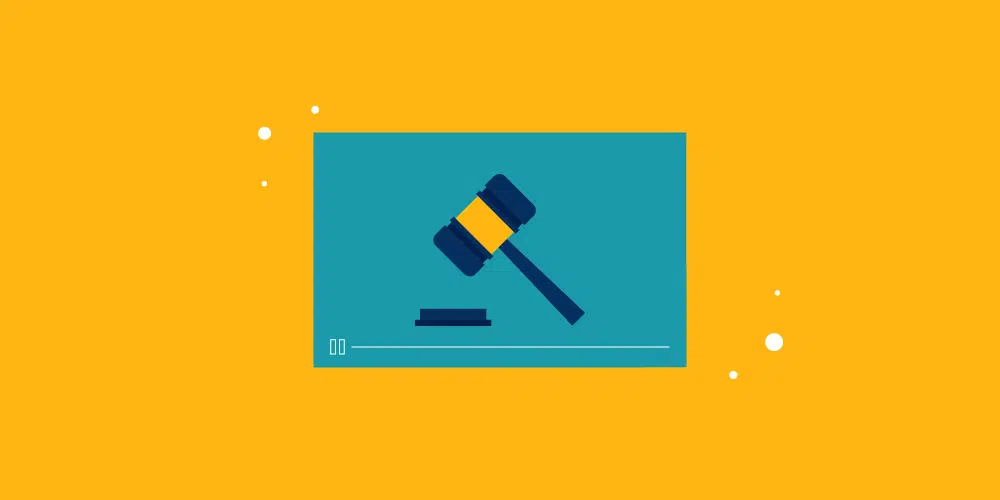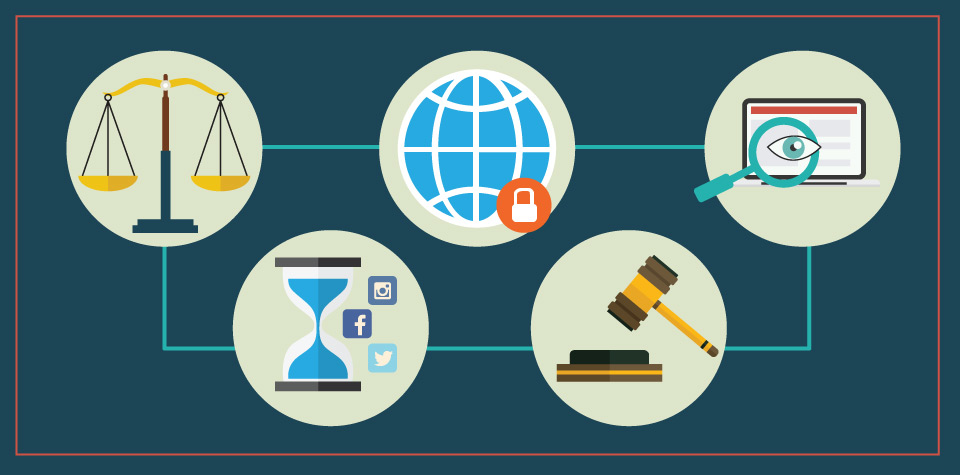
1 Mar
The Different Kinds Of Law That Evolves In Social Media
Social media has become an integral part of our lives, with many of us spending hours every day scrolling through these platforms. But how much do we know about the legal implications of social media use? From government regulations to the criminal activity that can be associated with it, there are a wide variety of laws that come into play when using social media. In this article, we will explore the different kinds of laws that involve social media and what you should be aware of before posting online.
Types of Laws Involved in Social Media
The use of social media has become ubiquitous in our lives, and with it comes a variety of legal issues that can arise. To start, there are regulations by government agencies concerning the content that can be posted on these platforms. Social media policies at companies must also adhere to certain rules set forth by the federal government. Additionally, certain kinds of concerted activity such as unionization have been given protections from employers under federal law.
In addition to government regulations, there are ethical and moral issues that can come up when using social media. Abusive behaviors such as cyberbullying or making false statements about someone else on social media can carry severe legal consequences. This is especially true for public figures, who may be held to higher standards than private citizens when it comes to making statements online. Finally, posting information about someone’s health care or health condition without their express consent is a breach of basic rights and could result in serious legal repercussions.
Overall, understanding the various types of laws involved in social media is important for anyone who uses these platforms regularly. While it is becoming increasingly common practice to post online without thinking twice, there are times when you should consider the potential legal ramifications before hitting ‘post’ on your next social media application update.
In conclusion, social media is a powerful tool that can bring people together, but it comes with many potential legal implications that must be taken into consideration. As we move further into the digital age, understanding the laws surrounding social media use is becoming increasingly important. Be sure to stay informed and keep up with the latest changes in this ever-evolving landscape. And now, let’s take a deeper dive into the various platforms and accounts available on social media!

Social Media Platforms and Accounts
Social media platforms and accounts allow people to connect with others around the world. These platforms range from general-interest sites such as Facebook, Twitter, and Instagram, to specialized professional networks like LinkedIn. Each platform has its own rules and regulations regarding what type of content can be posted and how it should be shared.
When creating social media accounts, users should be aware that their posts may become public. Individuals need to use discretion when posting personal information or opinions online, as these could come back to haunt them in the future. Additionally, individuals should consider the professional relationship they have with their employer before making any comments related to work on a social media site.
In addition to ethical considerations, there are legal implications involved in using social media. Posting false statements about someone else or engaging in criminal activity on social media could result in significant penalties under federal law. Furthermore, certain kinds of concerted activities such as unionization are protected by federal law and employers may not retaliate against employees for participating in such activities online.
Overall, understanding the various types of laws involved in social media is essential for anyone who uses these platforms regularly. Being mindful of potential legal ramifications before hitting ‘post’ on your next update will help ensure that you remain within the bounds of the law and protect yourself from possible repercussions down the line.
The use of social media can be a great tool for connecting and communicating with people around the world, but it is important to keep in mind the potential legal ramifications of posting content. By understanding the various types of laws that govern social media usage, you can ensure that your posts remain compliant with federal regulations and protect yourself from any potential repercussions. Now, let’s take a look at how government agencies are getting involved in social media and what role they play.
Government Agencies and Their Role in Social Media
Government agencies have been taking an active role in the world of social media, with the Federal Government leading the way. The US government uses social media to communicate with citizens and to spread awareness about important topics such as health care and civil rights. Additionally, by monitoring social media activity, federal agencies can help identify and address abusive behaviors such as cyberbullying or discrimination.
Federal agencies are also responsible for creating policies governing how social media applications should be used by their employees. These policies help to ensure that workers are aware of their basic rights when it comes to posting on sites like Facebook or Twitter, as well as any potential legal consequences of engaging in inappropriate activities online. Furthermore, federal agencies use social media to investigate cases involving defamation or actual malice against public figures.
It is becoming increasingly common practice for government agencies to utilize social media platforms to better serve citizens and uphold ethical standards online. By understanding the role these agencies play in regulating and monitoring activity on sites like Facebook and Twitter, users can rest assured that their posts remain within the bounds of the law while still enjoying the benefits that come with being part of an ever-growing digital community.
Legal Issues Surrounding Social Media Platforms and Accounts
Social media accounts have become a major source of communication, entertainment, and information for millions of people around the world. Unfortunately, legal issues can arise from the use of these platforms and it is important to be aware of potential risks before posting. For example, employees may be subject to termination if they post false statements about their employer or engage in illegal activities online. It is also important to consider the ethical implications of posts on social media sites as they can have a long-term impact on personal relationships and professional reputations. Furthermore, concerted activity amongst employees on social media can be seen as a form of unionization and could lead to legal action if deemed inappropriate by an employer. Finally, posts regarding health conditions or bad behavior should always be monitored closely as they could potentially put someone at risk or lead to defamation claims. By understanding the various legal issues surrounding social media accounts, users can ensure that their activity remains within the bounds of the law while still enjoying the many benefits these platforms provide.
Rights of Employees on Social Media Platforms and Accounts
Employees have the right to express their opinions on social media platforms and accounts, as long as it does not interfere with their work duties or violate any company policies. Companies are allowed to set forth rules for employee use of social media, such as prohibiting the posting of confidential information or offensive content. However, employers must be careful not to infringe upon an individual’s basic rights, including freedom of speech. Employees should also be aware that certain behaviors on social media can lead to legal consequences and should be mindful of how they interact with fellow workers online. Additionally, when engaging in professional relationships online, setting boundaries is important to maintain a respectful environment. Abusive behavior can result in serious legal action and should always be avoided. By understanding the rights of employees on social media platforms and accounts and by adhering to common practices such as respecting professional relationships, users can ensure that their activity remains within the bounds of the law while still enjoying the many benefits these platforms provide.

Posts on Social Media Sites
Posts on social media sites have the potential to be seen by millions of people, and their content can have legal consequences if it is found to be false or defamatory. In some cases, posts that are deemed libelous or slanderous can lead to civil suits or even criminal charges. Additionally, posts that infringe on copyrights or violate terms of service agreements may also result in legal action. Government agencies such as the Federal Trade Commission (FTC) are responsible for monitoring and enforcing laws about online postings. Posting false health information or making public statements about a person’s health condition without their consent could also lead to legal repercussions. All users need to exercise caution when posting on social media sites, being mindful of the ethical and legal implications that can arise from inappropriate postings.
It is important to remember that even though social media sites offer an easy and convenient way to communicate, they can also create serious legal consequences if not used responsibly. As always, think before you post! Read on to learn more about the legal implications of posting online.
Legal Implications of Posting Online
Posts on social media sites can have serious legal implications if not used responsibly. False statements, defamatory remarks, or slanderous posts can lead to civil or even criminal charges. It is also important to remember that government agencies such as the Federal Trade Commission (FTC) monitor and enforce laws about online postings. In addition, posts that infringe on copyrights or violate terms of service agreements may also result in legal action. Furthermore, posting false health information or making public statements about a person’s health condition without their consent could also lead to legal repercussions.
When it comes to social media, all users need to exercise caution and be mindful of the ethical and legal implications that can arise from inappropriate postings. To avoid any potential issues, it is best practice to take extra care when crafting and publishing posts online, double-checking facts before sharing them with others and refraining from commenting on matters you are not familiar with.
Protection from Defamation/False Statement Claims
Social media users need to be aware of the potential legal implications that can arise from making false or defamatory statements about another individual or organization. To protect themselves from defamation and false statement claims, social media users need to take extra care when crafting and publishing posts online, double-check facts before sharing them with others and refrain from commenting on matters they are not familiar with. It is also important for individuals to remember that in some cases, a retraction or apology after the fact may not absolve them from any potential legal consequences. Furthermore, certain types of speech may be considered as an act of concerted activity which can lead to liability under federal law if it involves more than one person. To ensure protection against any potential defamation or false statement claims, it is best practice to avoid making public statements about people without their consent.
Criminal Activity related to Posts on Social Media Sites
Posting criminal activity on social media sites can have serious legal consequences. Any person who posts or shares content that constitutes a crime may be liable for prosecution under both state and federal laws. This includes activities such as cyberbullying, harassment, threats, fraud, identity theft, copyright infringement, and obscenity. Additionally, it is important to note that even if the content posted does not directly constitute a crime, it may still be considered an accessory to the crime if it is used to facilitate a criminal act. It is also important to remember that posts made on these platforms are often public and can be seen by many people in different jurisdictions. For these reasons, social media users need to be aware of the potential legal implications of their online activity and refrain from posting anything that could potentially break the law.
Professional Relationships on Social Media Sites Ethical Issues Related to Professional Relationships on Social Media Sites
Social media sites are increasingly becoming a popular medium for professionals to interact and form relationships. However, some ethical issues arise when it comes to professional relationships on social media sites. For example, if a professional is in a position of authority over another person, then the relationship should remain strictly professional at all times. Additionally, it is important to maintain appropriate boundaries between personal and professional relationships on social media sites. Furthermore, employers must protect their employees from any forms of abuse or discrimination that may occur through social media channels. Finally, it is essential to keep in mind that posts made on these platforms are often public and can be seen by many people in different jurisdictions. Therefore, professionals need to take the necessary steps to ensure that their interactions on social media sites remain ethical and adhere to all applicable laws and regulations.
Conclusion
In conclusion, professionals need to maintain appropriate boundaries with their peers and subordinates on social media sites. This includes avoiding any forms of abuse or discrimination, as well as respecting basic rights, such as privacy and health care. Additionally, it is essential to be aware that posts made on social media platforms are often public, and therefore can have legal consequences if they contain false statements or criminal activity. Finally, employers should also develop a social media policy that outlines the expected behaviors and consequences of bad behavior on these platforms. By taking all of these steps, professionals can ensure that their interactions on social media sites remain ethical and adhere to all applicable laws and regulations.
Proudly powered byWordPress. Theme byInfigo Software.








